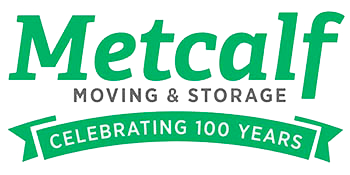METCALF MOVING BLOG
Understanding Some Residential Moving Company Terminology
Relocating to a new home is exciting as well as stressful. The moving process requires what seems like a million decisions and often leaves a family feeling unsettled until everything is unpacked at the new house.
When it comes time for your next move, one of the ways to reduce anxiety is to learn the terminology that professional moving companies use. After all, understanding the basic language of your moving service will help you communicate more effectively to avoid potential confusion.
This article takes a look at home moving services and some of the terminology they use when dealing with customers. Keep reading to get the inside scoop.
Inventory
When a moving company mentions inventory, they are talking about the detailed descriptive list of all of your household goods, both in quantity and condition of each individual item to be moved.
The inventory list assures that every item loaded on the truck, at the point of origin, is accounted for at the end destination.
If you are moving to another state or having your items picked up for storage, an inventory will be created. However, it is not required for a local move.
Valuation
Valuation is the sum value or “worth” of the contents being shipped. The valuation amount of your possessions is essential in case items are damaged or lost during transport.
Virtual Survey Moving Quote
A video chat moving estimate uses a Virtual Survey app to allow you to show an estimator the belongings you need to have moved.
The Virtual Survey is all done remotely using your smartphone or tablet. There’s no need to worry about answering your door or walking someone through your home. The Virtual Survey is a quick and easy way to get a moving quote.
Bill of Lading
Bill of lading describes the receipt for your possessions and the contract for their transport.
Keep in mind that it’s essential to read and fully understand the bill of lading before signing it. Never sign the bill of lading until you agree with the contents, and be sure to keep it somewhere safe until your shipment has arrived at the destination.
Carrier
The carrier is the term for a moving company you’ve hired. They will be responsible for the transport and care of your possessions.
Claim
When an item is damaged or lost during transport, you can file a claim with the carrier. This is a request for reimbursement, repair, or replacement of the item(s) in question, based on the type of valuation coverage you select.
Fuel Surcharge
Some moving companies will charge a fuel surcharge in addition to the price of the moving service. Keep in mind that every company is different, so you should inquire about a fuel surcharge before signing a contract.
Non-Allowable List
Moving companies cannot transport hazardous items, including flammable gases, explosives, and toxic substances. Many everyday household items are also not safe and can cause an increased risk of damage to the carrier’s property or the property of other customers. These hazardous items pose a potential threat to the health and safety of its movers and the general public. These items can be found on the moving company’s non-allowable list.
Peak Season Rates
These are rates charged during specific times of the year when demand for carriers is high. Peak seasons for moving companies are typically spring and summer when the weather conditions are optimal for moving.
Storage-In-Transit
This is the term for temporary warehouse storage of a shipment pending additional transport. For example, you might request your items to be stored for 30 to 90 days until the construction on your new home is complete, at which time your possessions will be delivered.
Moving Terms
When it’s time to relocate, be as educated about the process as possible. Fortunately, this guide to terms used by professional movers will help make your experience go a little smoother.












